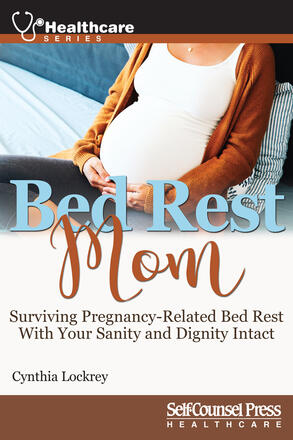
Bed Rest Mom
Surviving Pregnancy-Related Bed Rest With Your Sanity and Dignity Intact
Description
Bed rest orders may have snuck up on you, but that doesn’t have to mean months of agonizing, boring time wasting and feeling like you have lost all independence under house (or hospital) arrest as you await the arrival of your bundle of joy. Bed Rest Mom covers the differences between what you’re allowed to do (or not do) on home-based bed rest versus hospital-based bed rest. With the guidance in this book, you can learn what questions you need to ask and what to expect.